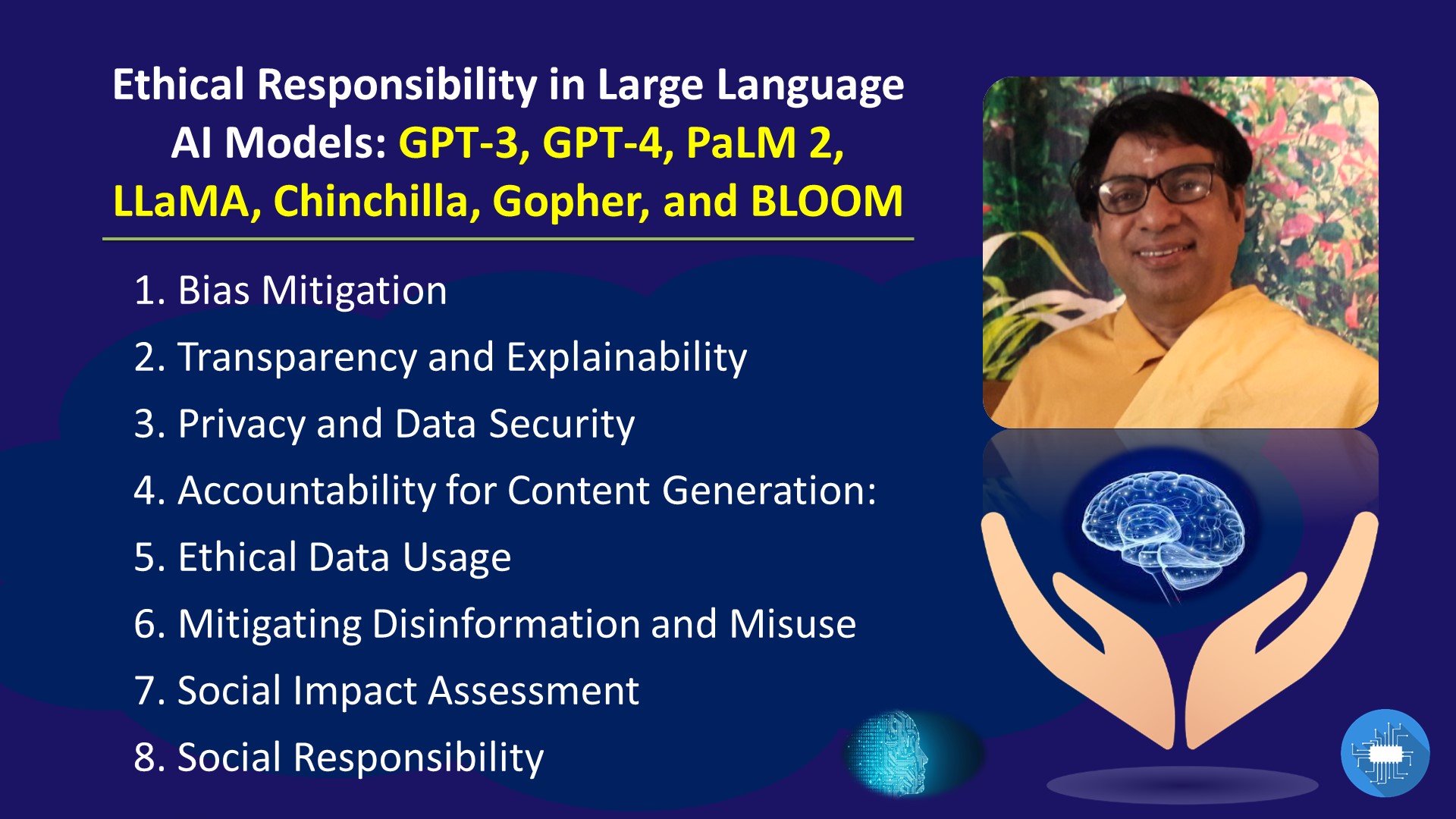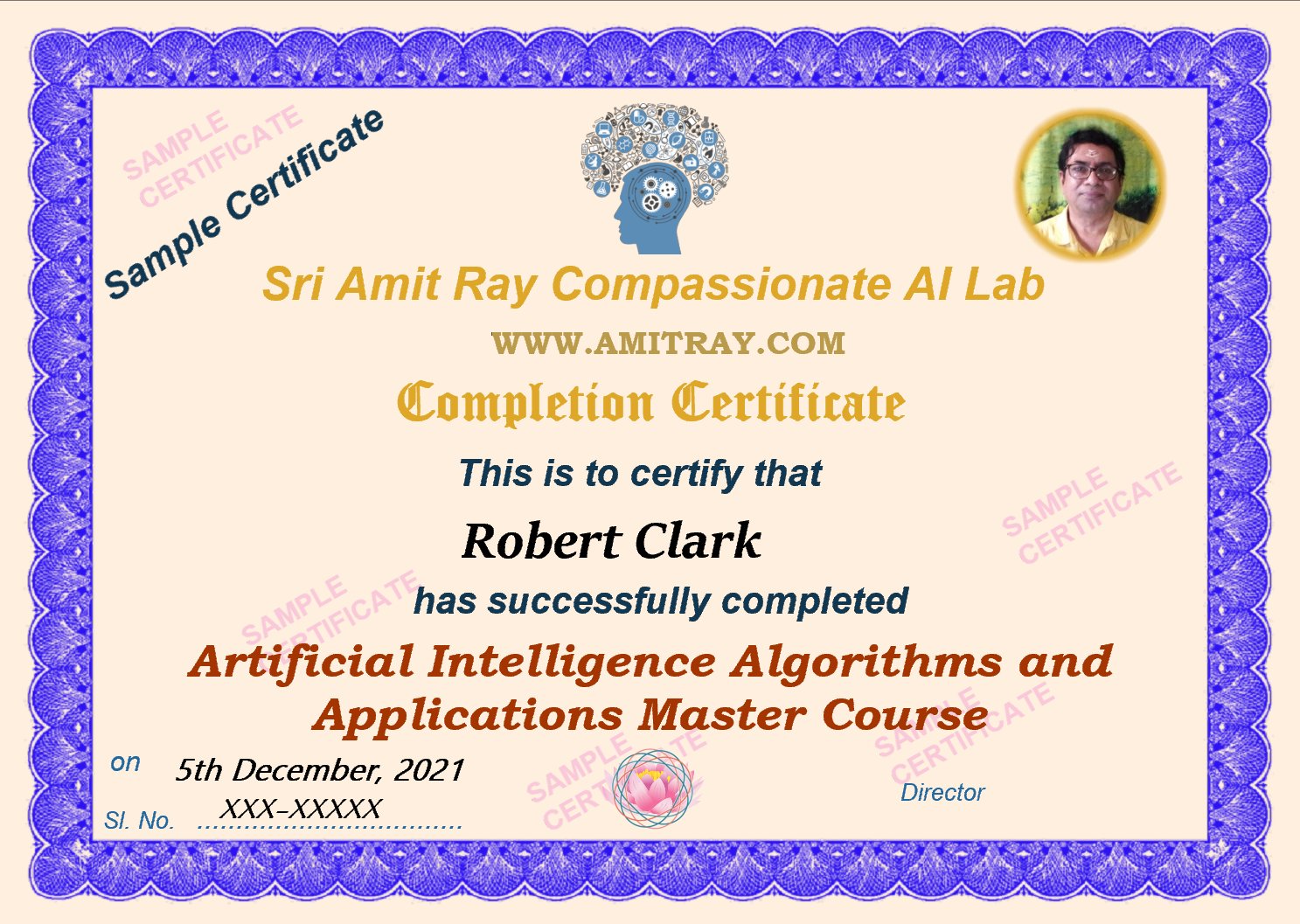Artificial Intelligence Master Course
Algorithms and Applications
A 15-Weeks Guided Online Course
Sri Amit Ray Compassionate AI Lab
In this 15-week online course, you will learn and understand the main algorithms and approaches to artificial intelligence and deep learning. You will learn the techniques to improve your AI and machine learning model building skills and algorithm development skills. It includes total 15 online one-on-one classes, for real-world case studies, and hands-on practices and exercises.
The aim of the course is to:
- be able to apply the algorithms for different applications and interpret the results
- be able to build models and algorithms and adjust parameters
- understand the applicability of the algorithms to different types of data and problems along with their strengths and limitations
The case studies share real world stories from teams who have designed AI-driven products using human-centered AI based practices. Primarily you can use R programming or Python programming for practicing the examples and projects.
The Course Contents
The course structure varies, depending on individuals' experiences, needs, and interests. However, there will be a total of 15 classes. The general content of the modules of the course are as follows:
Module 1: Artificial Intelligence Fundamentals
- Human Intelligence vs Artificial Intelligence
- Human brain vs Artificial Intelligence
- General Artificial Intelligence vs Ethical Artificial Intelligence
- Ethical Artificial Intelligence vs Compassionate Artificial Intelligence
- Difference between Artificial Intelligence, Machine Learning, and Deep Learning
- Recent trends of AI from robots to humanoids
- Machine Learning Frameworks
- Future challenges of Artificial Intelligence
Module 2: Basic Machine Learning Algorithms and Practices
- Hypothesis Testing
- Linear Regression
- Logistic Regression
- Clustering
- Analysis of Variance (ANOVA)
- Principal Component Analysis
- Naive Bayes
- Decision Tree
- Random Forest
- Support Vector Machines
- K Nearest Neighbors
- Gradient Boosting algorithms
- Neural Networks
- Ensemble Methods
Module 3: Feature Engineering and Model Building
- Data preparation
- Min-max Scaling, Standardization, Log Transformation, One hot Encoding, etc.
- Data visualization
- Dimensionality reduction
- Model selection
- Model training
- Model performance evaluation - Confusion matrix, ROC, AUC etc.
- Parameter initialization
- Avoiding overfitting and underfitting
- Loss functions and Hyper-parameter optimization
Module 4: Deep Learning Algorithms and Practices
- Neural Network Fundamentals
- Gradient Descent, Backpropagations, and Optimization Algorithms
- Deep Neural Network (DNN)
- Convolutional Neural Network (CNN)
- Recurrent Neural Network (RNN)
- Long Short Term Memory (LSTM)
- Restricted Boltzmann Machine (RBM)
- Generative Adversarial Networks –GANs
Module 5: Transfer Learning Fundamentals and Practices
- Transfer learning based on CNN models
- Transfer learning based on NLP models
- Building Transfer learning new models
- Transfer learning accuracy measurements and parameter adjustments
Module 6: Reinforcement Learning
- Markov Models and Markov Decision Process
- Model Free Reinforcement Learning - SARSA Learning
- Model Free Reinforcement Learning - Q-Learning
- Deep Neural Network Q-Learning
- Model Based Reinforcement Learning
Module 7: Artificial Intelligence Projects
You will be doing your home assignments and projects with Python depending on your needs, experience, interest, and the availability of your computing facilities and timings.
Some of our popular Python Machine Learning Projects are:
- Sentiment Analysis
- Detecting Parkinson's Disease
- Detection of Fake News
- Next word prediction
- Movie Recommender
- Customer Segmentation
- Speech Emotion Recognition
The common datasets used for the projects and the home assignments are as follows:
- MNIST digits classification dataset
- CIFAR10 small images classification dataset
- CIFAR100 small images classification dataset
- IMDB movie review sentiment classification dataset
- Reuters newswire classification dataset
- Fashion MNIST dataset
- Boston Housing price regression dataset
Course Fees $750 USD
| | Details |
| Course Fees: | $750 USD (Rs. 50,000/- INR) |
| Duration: | 15 Weeks (Total 15 One Hour Sessions) |
| Location: | Online via Skype / ZOOM/ WhatsApp |
| Benefits: | You will learn the algorithms, theory, and practices of modern artificial intelligence and deep learning. |
| Study Material: | You will get Ten PDF Files as Study Materials. |
Register Now
Course Certificates
 |
E-Certificate After completing the Artificial Intelligence and Deep Learning Algorithms and Applications Master Course successfully you can obtain the E-certificate from Sri Amit Ray Compassionate AI Lab. |
After you register and submit your payment for an online session, you are notified by email and offered a set of choices for the dates and times for the online session. You choose one, and confirm by email. You can always email us, if you have a special preference.
Then the session follows - a session designed for you to learn the AI course tailored to your needs, and experiences.
The online classes are provided by Sri Amit Ray, as one-to-one online Skype / Zoom / WhatsApp sessions at mutually convenient date and time. The duration of each session is about an hour. The course includes guided instructions, discussions, and study material.
Upon completion of the online registration and payment process, you will be informed by email, about the date and time of your meditation classes, which are mutually adjustable.
Register Now
After the completion of 15 classes for this course, you can request extra classes for in-depth understanding or discussion of a particular topic of AI, which can be arranged for a fees of $50 USD, per extra class.
Read more ..

